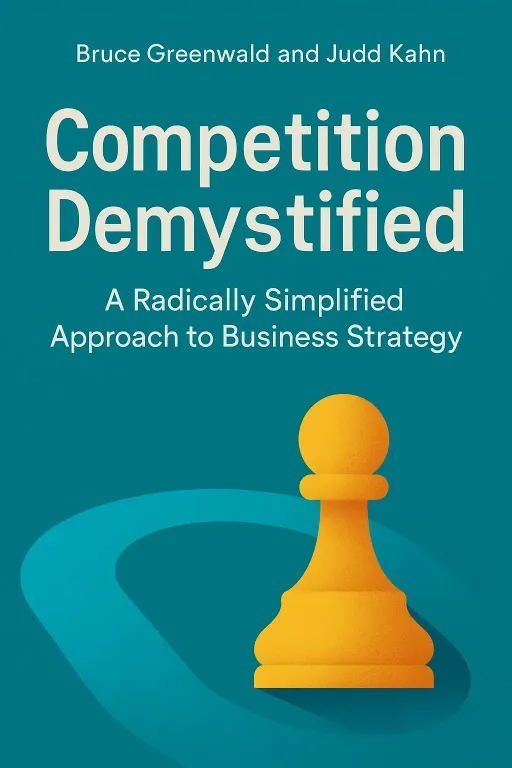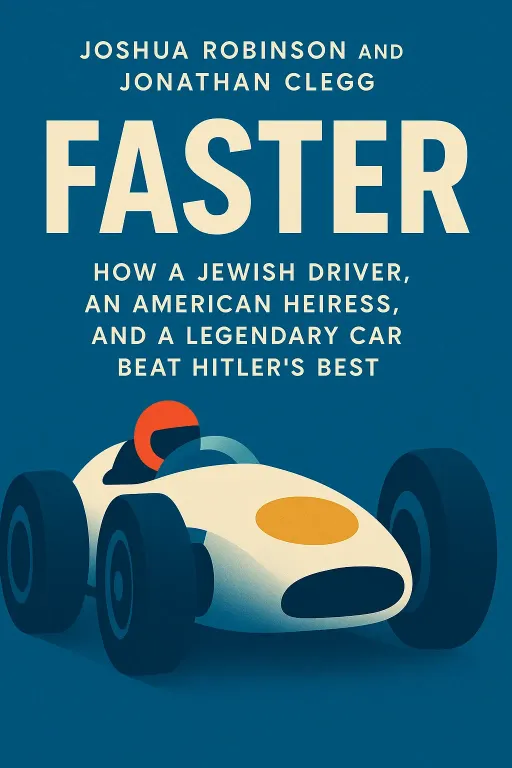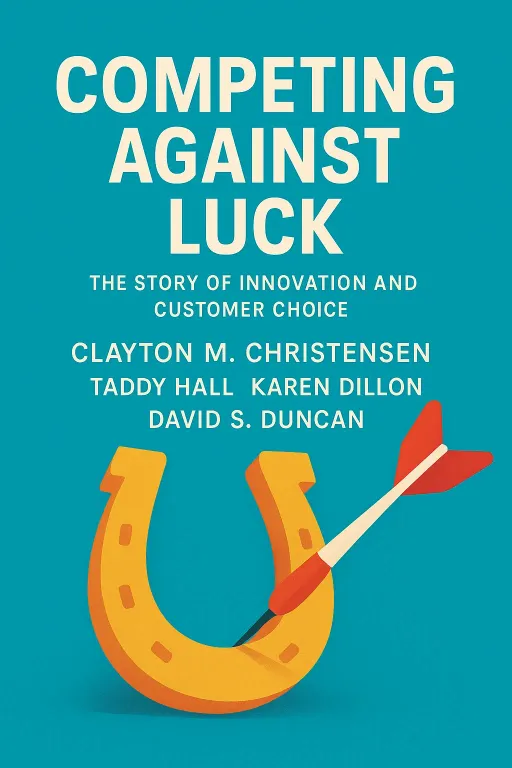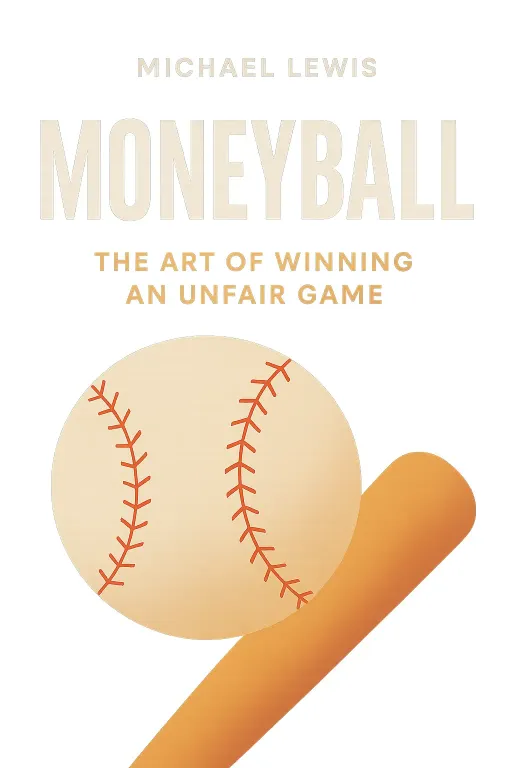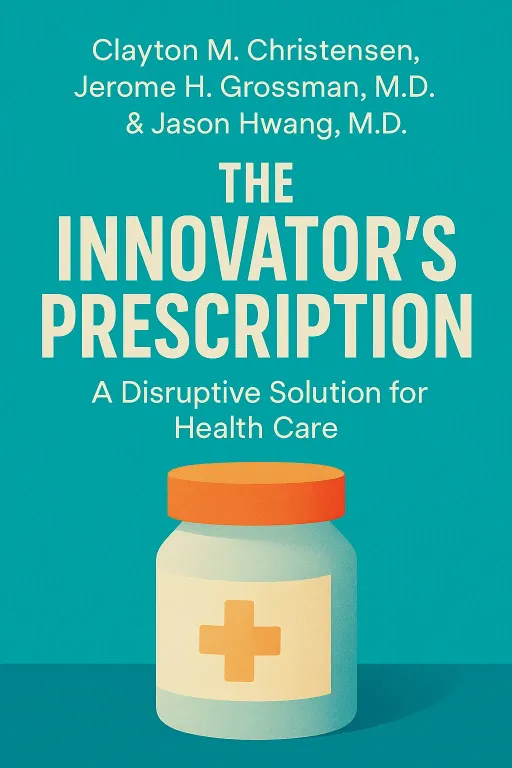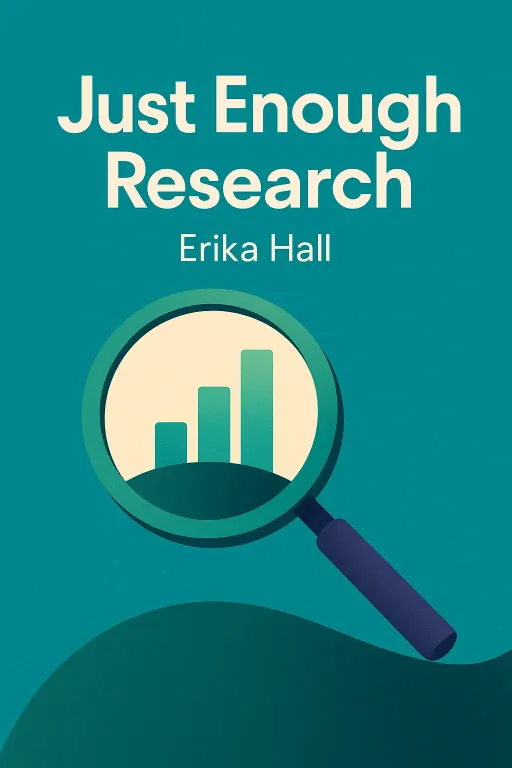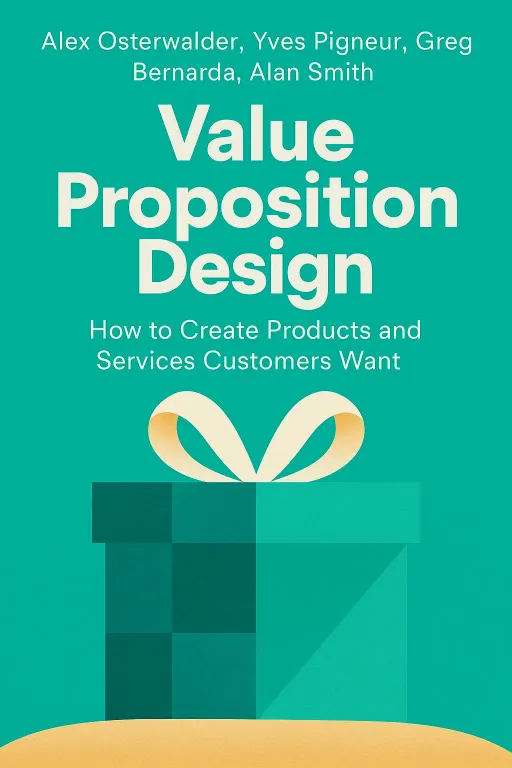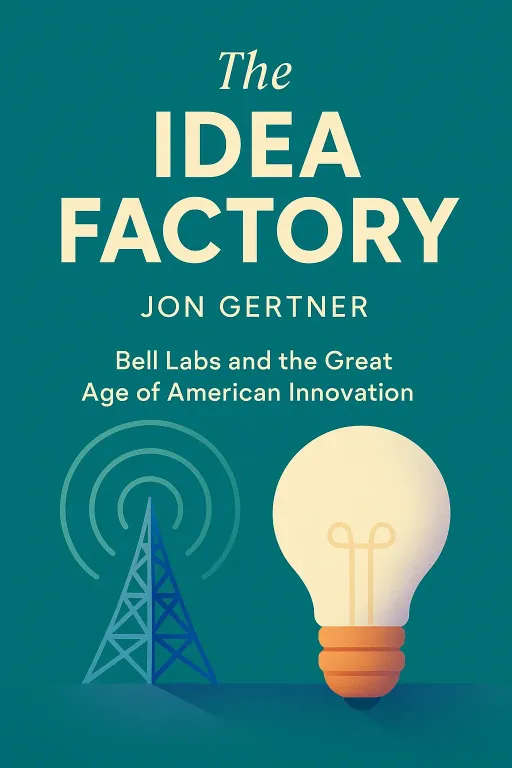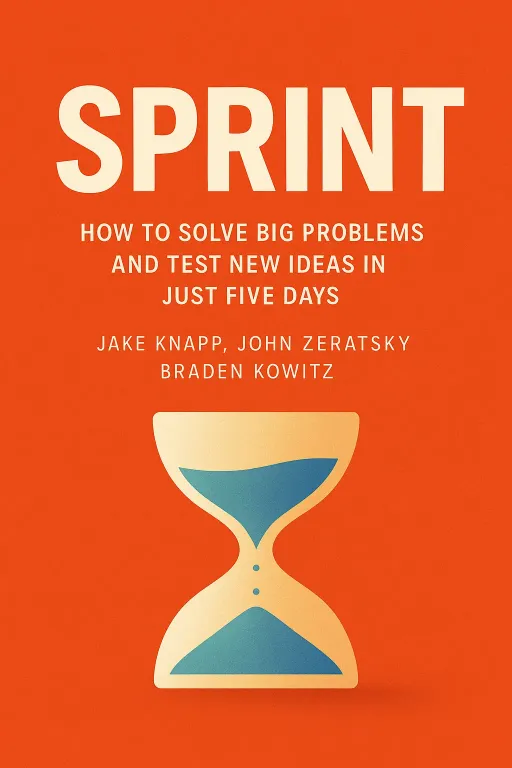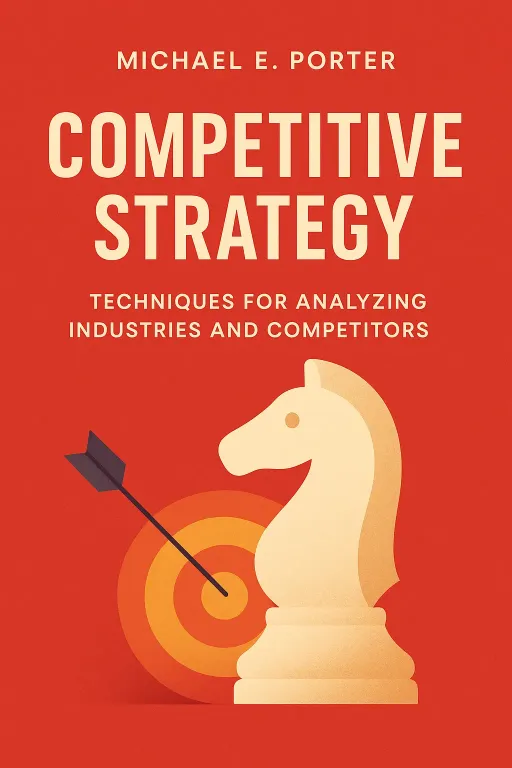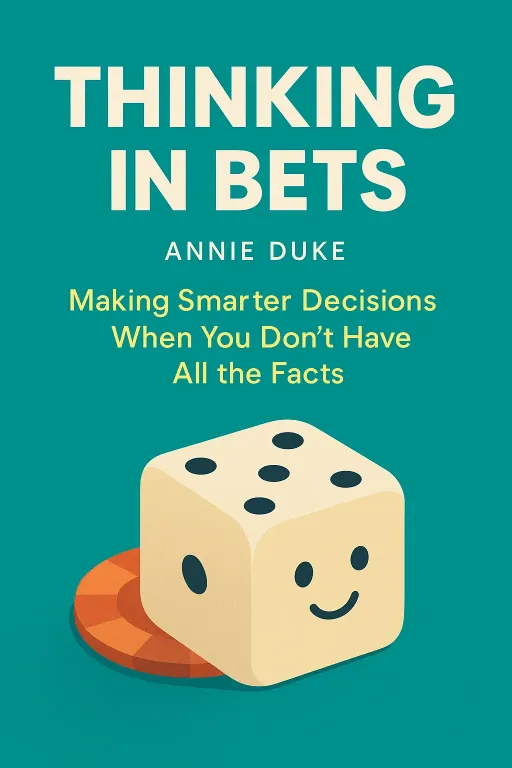
The Unlucky Genius
10 minMaking Smarter Decisions When You Don’t Have All the Facts
Golden Hook & Introduction
SECTION
Joe: Most of us believe that if a decision leads to a terrible outcome, it was a bad decision. What if that's completely wrong? What if the worst decision in Super Bowl history was actually one of the smartest? Lewis: Wait, are you talking about that Seahawks pass from 2015? Everyone agrees that was a historic disaster. How could it possibly be smart? It’s the poster child for bad calls. Joe: Exactly. And that very reaction is why we need to talk about today’s book, Thinking in Bets: Making Smarter Decisions When You Don't Have All the Facts by Annie Duke. She argues that our obsession with results is one of the biggest traps in decision-making. Lewis: Annie Duke… she’s the famous poker player, right? I’ve heard some people say the book leans a little too heavily on the poker analogy. Does it hold up if you don't know a full house from a full-time job? Joe: It absolutely does, and that’s because of her unique background. She's not just a World Series of Poker champion; she was a PhD candidate in cognitive psychology at the University of Pennsylvania. She left academia just shy of her doctorate to play poker professionally. So she’s looking at high-stakes decisions with the mind of both a scientist and a world-class gambler. Lewis: Okay, that’s a fascinating combination. A scientist who gambles for a living. I’m listening.
The Resulting Trap: Why Good Decisions Can Look Bad
SECTION
Joe: So let's go back to that Super Bowl. It’s the perfect entry into Duke's first big idea: a cognitive bias she calls "resulting." For anyone who doesn't remember, it's Super Bowl XLIX. The Seattle Seahawks are trailing the New England Patriots 28-24. There are only 26 seconds left in the game. Lewis: And they're on the one-yard line! They have the ball, a timeout, and one of the most powerful running backs in the league, Marshawn "Beast Mode" Lynch. It’s the most obvious play call in the world: give the ball to Lynch. Joe: That's what millions of people were screaming at their TVs. But coach Pete Carroll calls for a pass play. Quarterback Russell Wilson throws the ball, and it’s intercepted by the Patriots' Malcolm Butler. Game over. The Seahawks lose. The entire world immediately labels it the single worst play call in the history of football. Lewis: As they should! It was a catastrophic failure. You can't just ignore that. It feels like this "resulting" idea is just a fancy way to let yourself off the hook for messing up. Joe: That’s the trap! We're equating the quality of the decision with the quality of the outcome. Duke forces us to separate them. Let's look at the decision-making process. Carroll knew the Patriots would expect a run. A pass play offers the element of surprise. More importantly, an incomplete pass stops the clock, giving them two more chances to score. A run play that fails to score, however, could burn the rest of the clock, leaving them with no more chances. Statistically, the pass play had a lower chance of interception than the run play had of failing and ending the game. Lewis: Huh. So you're saying there was actual logic behind it, not just a moment of madness. Joe: Exactly. It was a reasonable bet that just happened to land on the wrong side of probability. Duke uses a much clearer analogy: a drunk driver who makes it home safely. The outcome was good—no one got hurt. But was the decision to drive drunk a good one? Of course not. We know it was a terrible decision because the process was deeply flawed, regardless of the lucky result. Lewis: That makes a lot of sense. We praise the lucky fool and crucify the unlucky strategist. I had a friend in college who put his student loan money into some random tech stock and made a fortune. He thought he was a financial genius. Joe: And he probably made some terrible decisions later on because he learned the wrong lesson. He attributed his success to skill when it was pure, dumb luck. That’s the danger of resulting. It corrupts our ability to learn from experience. We either beat ourselves up for bad luck or get overconfident from good luck, and in both cases, we fail to improve our actual decision-making process.
The Poker Player's Mindset: Treating Life as a Series of Bets
SECTION
Lewis: Alright, so if we can't trust outcomes to tell us if we made a good decision, what can we trust? How are we supposed to judge anything? It feels like we're just floating in a sea of uncertainty. Joe: And that’s exactly where Annie Duke wants us to be! That's where her central thesis comes in: we need to stop thinking like chess players and start thinking like poker players. Lewis: What's the difference? They both seem like games for people who are way smarter than I am. Joe: But they model the world in fundamentally different ways. Chess is a game of perfect information. There's no hidden information, and very little luck. Every piece is visible. In theory, a powerful enough computer can calculate the optimal move. Life isn't like that. Lewis: Definitely not. My life feels like half the pieces are missing and the board is on fire. Joe: Precisely. Life is poker. It’s defined by incomplete information, risk, and a massive element of luck. You don't know what cards your opponents have, and you don't know what cards are coming next. All you can do is make the best possible bet based on the limited information you have. Lewis: So "thinking in bets" isn't literally about gambling? It's a mindset. Joe: It's a profound mindset shift. It’s about moving away from black-and-white thinking—the need to be "right" or "wrong"—and embracing probabilities. Instead of saying "This new business venture will succeed," you say, "I believe this has a 70% chance of succeeding, and here's why." It forces you to be honest about what you don't know. Lewis: That phrase, "I'm not sure," feels so powerful there. We're taught that confidence is everything, but Duke seems to be arguing that admitting uncertainty is a sign of strength. Joe: It's the most crucial step to becoming a better decision-maker. She tells a hilarious story from the old sitcom WKRP in Cincinnati. The station manager, Mr. Carlson, decides on a Thanksgiving promotion: dropping live turkeys from a helicopter over a shopping mall. Lewis: Oh, I think I know where this is going. Turkeys don't fly very well, do they? Joe: They fly about as well as anvils. The turkeys plummet to the ground, causing chaos and a riot. Later, covered in feathers, a traumatized Mr. Carlson delivers the classic line: "As God is my witness, I thought turkeys could fly." He was 100% certain about a belief that was 100% wrong. He wasn't thinking in bets; he was acting on a false certainty, and the result was a disaster. A poker player would have at least asked, "What are the odds that turkeys can actually fly?" Lewis: It's funny, but it’s also a perfect example. We all have these "turkeys can fly" beliefs that we've never really questioned. We just assume they're true and make huge life decisions based on them.
Building Your Cognitive Toolkit: Truth-Seeking Pods and Mental Time Travel
SECTION
Lewis: This all sounds great in theory, but our brains are wired for certainty and ego. We want to believe we're smart and in control. How do we actually fight against our own programming on a daily basis? Joe: That's the final piece of the puzzle. Duke provides a practical toolkit. The first, and maybe most important, tool is to not go it alone. She advocates for creating a "truth-seeking pod" or a "buddy system." Lewis: Like a support group for bad decisions? Joe: Sort of, but with a very specific charter. The goal of the group is not to make you feel better, but to get to the truth. When you ask for advice, for instance, you should describe the situation and your options, but you must not reveal the outcome. Lewis: Oh, that's clever. Because the moment you say "and then I lost all my money," their advice is tainted by resulting. They'll just work backward from the failure. Joe: Exactly. It forces them to analyze the decision with the same ignorance you had. The group's job is to be skeptical, to challenge your assumptions, and to help you see your own biases. It’s about rewarding accuracy over ego. Lewis: That requires a lot of trust and a willingness to be vulnerable. You have to find people who are committed to making you better, not just agreeing with you. Joe: Absolutely. The second major tool is what she calls "mental time travel." It's about actively consulting with your past and future selves to make better decisions in the present. One of the most powerful techniques she discusses is the "premortem." Lewis: A premortem? Like, before death? Joe: Precisely. We're all familiar with a postmortem—after a project fails, everyone gets in a room to figure out what went wrong. A premortem flips that. Before a project even begins, you gather your team and say, "Okay, let's imagine it's six months from now, and this project has been an absolute, unmitigated catastrophe. It failed spectacularly. Now, let's spend the next hour writing down every possible reason why." Lewis: Wow, that's brilliant. It's like giving yourself permission to be negative and critical in a constructive way. It completely bypasses our natural optimism bias and forces you to see potential obstacles you would have otherwise ignored. Joe: It's an incredibly effective way to de-risk a decision. Another mental time travel tool is the "Ulysses Contract," based on the story from Homer's Odyssey. Ulysses knew he couldn't resist the Sirens' deadly song, so he made a pre-commitment. He had his crew tie him to the mast of the ship and plug their own ears with beeswax. His rational, present self made a binding contract to protect his future self from his own irrational impulses. Lewis: So, for us, that could be something like setting an automatic transfer to a savings account on payday, before our impulsive self can spend the money. Or giving a friend $100 and telling them not to give it back unless you go to the gym three times that week. Joe: Exactly. You're using your calm, rational mind to put constraints on your future, emotional mind. You're betting on your own future weakness and hedging against it.
Synthesis & Takeaways
SECTION
Joe: Ultimately, what Duke is arguing for is a kind of intellectual humility. It's about making peace with the fact that the world is messy and uncertain. The goal isn't to be right all the time, because that's impossible. The goal is to become less wrong over time. It's a fundamental shift from protecting our ego to relentlessly pursuing the truth, even when it's uncomfortable. Lewis: It really changes how you think about failure and regret. It’s not about what you did, but how you decided. It takes the emotional sting out of a bad outcome and reframes it as a learning opportunity. It makes me look back on so many things I've beaten myself up over. Joe: And it gives you a path forward. You can't control luck, but you can control your process. You can build a better system for making choices. Lewis: That leads me to a question for our listeners. What's a decision you've made that you've always judged harshly because of a bad outcome? Thinking about it now, through this lens of "resulting," was the decision-making process actually sound? Joe: That's a fantastic question. It’s a fascinating exercise in self-compassion and clear thinking. We'd love to hear your thoughts on this. Share your stories with the Aibrary community. Lewis: It’s a bet that will probably make you feel better. Joe: This is Aibrary, signing off.
